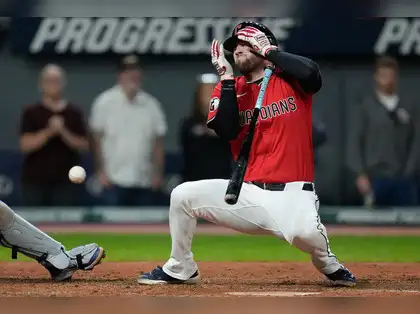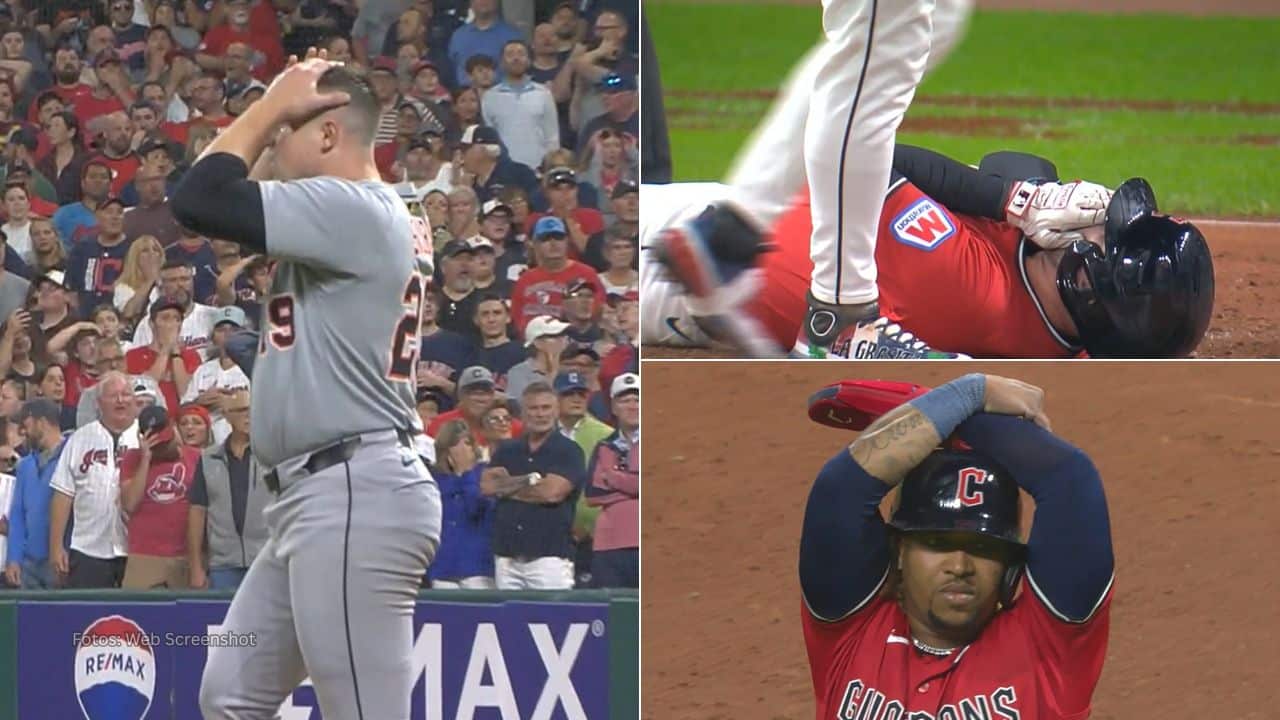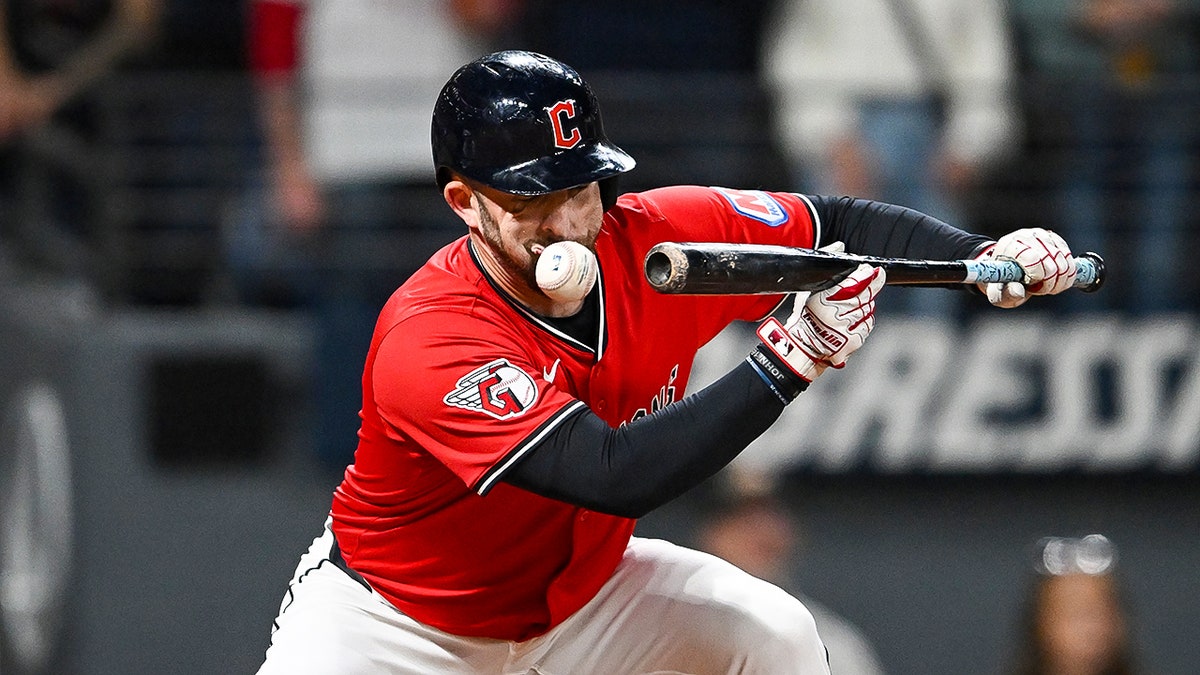Baseball is a game of passion, competition, and skill, but at times it also becomes a stage for moments of sheer human vulnerability. Such a moment unfolded when David Fry collapsed after being struck by a blistering 99 mph fastball thrown by Tarik Skubal. The stadium, usually alive with cheers, chants, and energy, fell into an eerie silence. Thousands of fans watched in shock as Fry was taken away on a stretcher, leaving behind an unforgettable scene that transcended sports. Skubal, visibly shaken, dropped his glove, lowered his head in prayer, and later confessed with tears in his eyes that he would rather lose the game than see an opponent suffer. This haunting image quickly spread across the baseball world and became one of the most talked-about events in Major League Baseball.
The incident not only stunned the crowd in attendance but also rippled across social media and news outlets. Fans, players, and analysts were united in concern for Fry’s health. The violent crack of the ball hitting him echoed louder than any home run or strikeout of the night, and for once, the game stopped mattering. What mattered most was the well-being of a player whose life had just been put at risk in the blink of an eye. The atmosphere in the ballpark shifted dramatically as medical personnel rushed to Fry’s aid. Teammates gathered anxiously, some pacing, others kneeling in silent prayer. Even opposing players struggled to hold back emotions, a reminder that while competition drives the sport, humanity binds everyone together.

Tarik Skubal, known for his fiery fastball and fierce competitiveness, was left brokenhearted. Pitchers rarely intend to hit batters, and when it happens at such velocity, the consequences can be devastating. In his post-game remarks, Skubal was visibly emotional. He admitted he could not stop replaying the moment in his mind and expressed deep remorse. “I just hope he’s okay,” he said softly, his voice cracking. “I’d rather lose the game than see that.” His words revealed the inner conflict every pitcher dreads—the knowledge that one pitch, meant to challenge and compete, can unintentionally cause immense harm. Skubal’s honesty and emotion struck a chord with fans and players across the league.
For Fry, the road to recovery will be long, both physically and mentally. Getting hit by a baseball at such velocity is no small matter. Medical experts have often warned about the dangers of head and upper-body injuries in baseball. Helmets, padding, and safety gear have improved over the decades, yet the risk remains ever-present. A ball hurled at nearly 100 mph becomes a lethal weapon if it finds the wrong target. Fry’s collapse illustrated the thin line between thrilling competition and potential tragedy. Many fans could not help but recall previous incidents in baseball history where similar accidents occurred. Each time, the game pauses, and everyone is reminded that these athletes are not invincible.
The incident sparked immediate discussion among analysts and commentators. Should Major League Baseball revisit rules regarding protective gear? Could there be advancements in helmets or padding to prevent such injuries? Some suggested that more research should go into developing equipment capable of reducing the impact of fastballs. Others argued that baseball, by its very nature, carries inherent risks, and that complete safety can never be guaranteed. Regardless of the debate, the image of Fry being carried off the field will remain a stark reminder of the game’s dangers.

What made this moment even more impactful was the visible humanity of Tarik Skubal. Too often in sports, athletes are perceived as hardened competitors, immune to emotions. Yet Skubal’s reaction shattered that stereotype. Throwing down his glove, bowing his head in prayer, and choking up afterward revealed not just a pitcher, but a human being torn apart by guilt and compassion. Fans on social media praised him for his vulnerability, noting that it was refreshing to see such honesty in a world where athletes often hide behind clichés and carefully rehearsed statements. Skubal’s emotional response turned him into a symbol of empathy within the game, a reminder that respect and humanity must always come before competition.
The crowd’s silence spoke louder than any cheer. In modern sports, stadiums are rarely quiet. Even in tense moments, there is usually some murmur, chant, or buzz. But on that night, when Fry collapsed, you could hear a pin drop. Thousands of fans stood frozen, hands over their mouths, some clasped in prayer. Parents hugged their children, trying to shield them from the harsh reality of what they had just witnessed. This collective silence became one of the most chilling aspects of the incident. It was not just the loss of noise; it was the presence of fear, concern, and empathy shared by everyone in attendance. Baseball had stopped being entertainment for a moment and had become a sobering reminder of life’s fragility.
As Fry was loaded onto the stretcher and carried off, players from both teams gathered near the dugouts. Some stared blankly, others wiped away tears. It was clear that no one was thinking about the scoreboard. The game’s outcome, once so important, now felt meaningless. Players knew they had just witnessed something bigger than baseball. Fans too, as they later admitted online, felt their hearts sink. Social media quickly filled with messages of support for Fry and empathy for Skubal, showing how deeply the moment resonated with people across the world.
In the days following the incident, MLB released a statement expressing concern and pledging full support for Fry’s recovery. Coaches, teammates, and even rival players shared their messages of encouragement. Fry’s health updates became the most anticipated news across the league, with every fan base collectively holding its breath. Sportswriters described the moment as one of the darkest yet most unifying in recent baseball memory. Commentators highlighted the humanity shown by Skubal and the compassion shared among fans and players alike. While tragedy had struck, it also brought out the very best of baseball’s community.

For Skubal, the road ahead will also require healing. Even if Fry recovers fully, the mental weight of the incident may linger. Pitchers who have been through similar experiences often talk about the difficulty of returning to the mound with the same confidence. The fear of unintentionally harming another player can haunt them. Yet many also emphasize the importance of support, counseling, and the reassurance that accidents are part of the game, however heartbreaking they may be. Skubal’s open display of grief and remorse has already endeared him to many fans, and in time, he may emerge stronger, carrying with him the lesson of compassion that he so powerfully demonstrated.
Looking ahead, MLB may take this as a turning point to once again address safety. Innovations in protective gear, coaching techniques to minimize risky pitches, and even rule adjustments could be on the horizon. While no solution can eliminate risk entirely, the league owes it to its players to pursue every avenue possible. The incident involving Fry and Skubal may one day be remembered not only for its heartbreak but also for the changes it inspired to make the game safer for future generations.
Baseball has always been more than just a sport. It is a reflection of life’s joys, struggles, triumphs, and tragedies. The moment David Fry collapsed after being hit by a 99 mph fastball reminded everyone that behind the uniforms and statistics are human beings with families, dreams, and vulnerabilities. It reminded us that while we celebrate the drama of competition, we must never forget the humanity that binds players and fans alike. Tarik Skubal’s emotional response, the silence of the stadium, and the outpouring of support across the league will forever be etched into baseball history.
In the end, this tragedy may also serve as a beacon of unity. Rivalries fade, standings lose significance, but compassion endures. As the baseball world continues to hope for Fry’s full recovery, the memory of that night will remain—a painful yet powerful reminder that the heart of the game lies not only in victories and defeats but in the humanity shared by all who love it.